Contents
Market Overview
Markets call it “peak QE” for the ECB. The ECB took several steps last Thursday to reinforce the persistence of stimulus. This means the PEPP envelope will be increased by EUR500bn and extended to at least March 2022 (program is EUR1.85tn in aggregate). Other measures include an extension of TLTRO III to June 2022, four longer-term financing operations and further reinvestment of liabilities. The ECB also softened the language and discussed the idea of not exhausting the facility as we’ve already seen with the Fed, while also seeking to pivot away from focusing on the quantity of asset purchases. Needless to say, Brexit negotiations won most headlines insofar as the absence of any material common ground, which saw GBP retreat to 1.32. Bulls may well point to Von der Leyen commenting on “UK sovereignty” while bears expect a dressed up no-deal “Australian scenario” to play out. Notably in U.S. rates, the curve tightened 8-12 bps with 2s10s flattening to 75 bps and 10s30s moved to 72 bps, as equities softened after reaching all-time highs. The S&P posted its first consecutive three-day drop since October, even as Airbnb doubled after its IPO. Some optimism comes with brent trading above $50/bbl, but the move in the palm oil has moved to an 8-year high and led to continued strengthening of the Malaysian ringgit. Last week struck a new all-time low for U.S. IG yields, however this week U.S. HY hit an all-time low, which increases the appeal of EM credit. This is an easier argument to make as Spain followed Portugal with 10yr yields turning negative. EM sovereign credit ended the week largely unchanged (+4.2% YTD), but the GBI-EM was up 0.7% (+1.8% YTD). Key contributors to performance were Zambia, Mozambique and Tajikistan, while Suriname, Lebanon and Turkey lagged. We also note that holders of Zambia CDS will have to physically settle due to the number of contracts outstanding, therefore a CDS auction following sovereign default on November 13th will not occur. This comes as the IMF have now begun to assess the country’s funding needs. South Africa also exited its longest recession in 28 years after 3Q annualized GDP came in at 66.1%, but this comes as 4Q high frequency data suggests further softness. Nevertheless, the rand hit a 10-month high on lower inflation (3.2%), with CDS tightening to 205 bps.
Next week we can expect central bank rate decisions out of Colombia (1.75%), Czech Republic (0.25%), Hungary (0.60%), Indonesia (3.75%), Kazakhstan (9.0%), Mexico (4.25%), Philippines (2.0%) and Russia (4.25%). We will also have clarity on inflation in Poland and whether tighter lockdown measures in November weighed on wage growth. This is at least expected to be visible in Israel’s lower inflation release, unlike Argentina and India where consumer price levels are expected to remain elevated. Beyond that, some focus is expected on Chinese industrial production, especially for the copper watchers but also after November CPI was negative for the first time since 2009. This is aside from the December FOMC, Eurozone PMIs and a revision to UK lockdown tiers (London expected to move to Tier 3).
Fixed Income
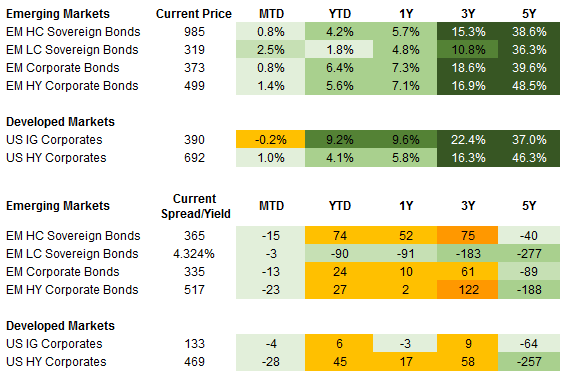
Equities
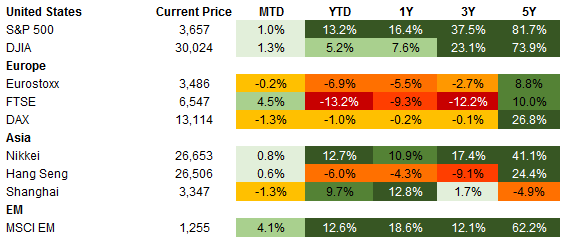
Commodities

Source for data tables: Bloomberg, JPMorgan, Gramercy. EM Fixed Income is represented by the following JPMorgan Indicies: EMBI Global, GBI-EM Global Diversified, CEMBI Broad Diversified and CEMBI Broad High Yield. DM Fixed Income is represented by the JPMorgan JULI Total Return Index and Domestic High Yield Index. Fixed Income, Equity and Commodity data is as of December 11, 2020 (Mid Afternoon).
Emerging Markets Weekly Highlights
Sanctions noise around Turkey increases, but risks are manageable, High hopes for vaccine rollout provide support to markets, Ghana incumbent NPP wins presidential race, Venezuela legislative election erodes Guaido’s position as interim President.
Sanctions noise around Turkey increases, but risks are manageable
Event: Market concerns about potential new sanctions on Turkey by the U.S. and/or EU have resurfaced this week. Media reports suggest that in the coming days the U.S. is poised to impose sanctions on Turkey over the acquisition of Russian S-400 missile systems. In addition, the EU Council Summit discussed relations with Ankara and potential steps to address its territorial claims in the Eastern Mediterranean.
Gramercy commentary: We think that material U.S. and/or EU sanctions on Turkey are unlikely in the near-term. If reports are correct that the Trump Administration will be the one imposing the legally mandated CAATSA sanctions while still in office, this will be good news for Turkey from a couple of angles. First, the outgoing administration is likely to be as lenient as possible and pick the mildest five options out of a menu of twelve measures prescribed by Congress. Second, the sooner the uncertainty around U.S. sanctions on Turkey over the long-standing S-400 issue gets resolved, the better from a market perspective. On the EU side, consensus over imposing biting sanctions on Turkey for its actions in the Eastern Mediterranean remains elusive, which means that for the time being any potential measures will be symbolic and uncontroversial. In addition, most European leaders would likely prefer to coordinate with the incoming Biden Administration before taking any significant policy actions on important geopolitical matters involving a key NATO ally such as Turkey. Risks for more significant sanctions (e.g. EU sanctions on banking, insurance, and energy) could increase in 1H 2021 depending on Turkey’s foreign policy actions and whether a “reset” with the West could be achieved under Biden. Our expectation is that President Erdogan will be pragmatic and moderate his ambitious foreign policy agenda. We believe that Ankara understands it is likely to face a more unified Western block as the U.S. re-asserts itself on the global stage and finds its way back to traditional global alliances and cooperation with Europe. Avoiding harsh systemic sanctions that could potentially harm a still fragile economy is critical for Turkey in 2021 as it embarks on a challenging recovery path from the pandemic shock and continues to pivot to a more orthodox economic policy mix that has been welcomed by markets.
High hopes for vaccine rollout provide support to markets
Event: This week, markets continued to reflect progress in vaccine development, with the SPX, CEMBI, and EMBI surpassing pre-COVID-19 highs. Following positive test results earlier in the month (>95% efficacy), the Pfizer and Moderna vaccines are moving closer to FDA approval (expected next week). In addition, the Johnson & Johnson and AstraZeneca’s vaccines are moving forward in the testing process, with FDA review expected in late January or early February. The first Pfizer vaccines were given in the UK and the Chinese vaccine (Sinopharm) gained approval in the UAE after proving 85% effective.
Gramercy commentary: The pace of economic recovery will be dependent on two factors: 1) successful mass distribution of the vaccine; and 2) consumer confidence that the virus is under control. This week, U.S. government officials predicted that every American who wants a vaccine will be able to get one by June of 2021. This hinges on FDA approval for all four vaccines (Pfizer, Moderna, Johnson & Johnson, and AstraZeneca), which are estimated to provide doses to cover 250 million people in the U.S. The positive news of the trials is a good first step in the vaccine distribution process. However, tail risks remain; negative reactions to the vaccine in patients, failed regulatory approval, mutation of the virus, and, finally, varied ability for governments and corporations globally to distribute the vaccines quickly and efficiently could slow the pace of recovery. A near-term signpost of success will be the FDA approval decisions next week and the FDA review of Johnson & Johnson and AstraZeneca’s vaccines in late January or early February. In emerging markets, we expect that countries with lower distribution risks, better vaccine coverage, and stronger healthcare systems will be better prepared for the vaccine rollout.
Ghana incumbent NPP wins presidential race
Event: President Nana Akufo-Addo of the New Patriotic Party (NPP) secured a second term with 51.6% of votes versus the National Democratic Congress (NDC) candidate John Mahama with support of 47.4%. The NPP also appears to have a very small majority in Congress with 137 seats versus the opposition with 135 seats. The election was tighter than prior races and the opposition has not yet accepted the results or conceded defeat.
Gramercy commentary: The outcome points to policy continuity and is generally in line with expectations. We think that the very close race and opposition response may complicate and delay but not derail the government’s ability to refine its fiscal consolidation and recovery agenda ahead of new external issuance plans in early 2021. We expect the government to lower its roughly 16% of GDP fiscal deficit inclusive of energy and financial sector related costs back near single digit territory next year on a combination of economic recovery, gradual scale back of current expenditure, and continued renegotiation of energy-related costs. If the current market backdrop persists amid global economic recovery, we think the government should be able to meet its financing needs of $5-6 billion absent a new IMF program. However, we do see scope for a new arrangement in the event of more challenged than envisaged external conditions given decent performance on prior programs and solid relations between the authorities and the Fund. The government is eligible for DSSI but has chosen thus far not to participate. Multilateral and official sector debt service is roughly 30% of total 2021 debt service suggesting participation could provide moderate relief but authorities have made clear it currently does not see the risk-reward profile, particularly in the context of PSI concerns, as favorable.
Venezuela legislative election erodes Guaido’s position as interim President
Events: The ruling PSUV party gained control over the National Assembly with just under 70% of the vote due to significant voter abstention amid opposition boycott and unfair electoral conditions.
Gramercy commentary: The unsurprising outcome challenges opposition unity and leadership and will result in a decline in the international community’s recognition of Juan Guaido’s role as interim President. Additional U.S. sanctions will likely follow in the lame duck session. While this keeps the probability of near-term regime change very low, we expect a gradual improvement in prospects under the Biden Administration amid a more effective multilateral strategy which leverages the EU and Venezuelan allies, notably Cuba. We continue to see effective engagement with the Venezuelan military as a necessary component to a successful strategy, with focus by the new U.S. Administration potentially shifting to a “negotiated transition” solution.
Emerging Markets Technicals
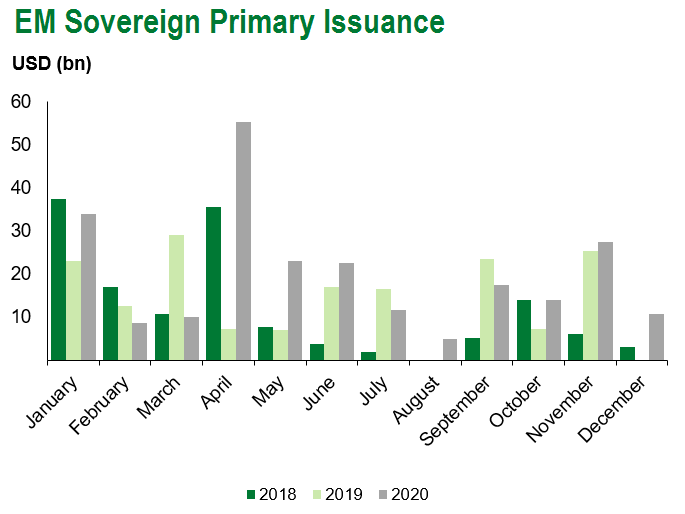
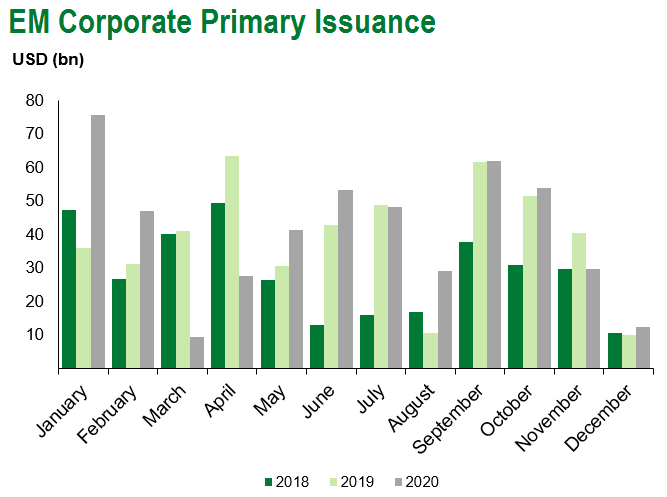
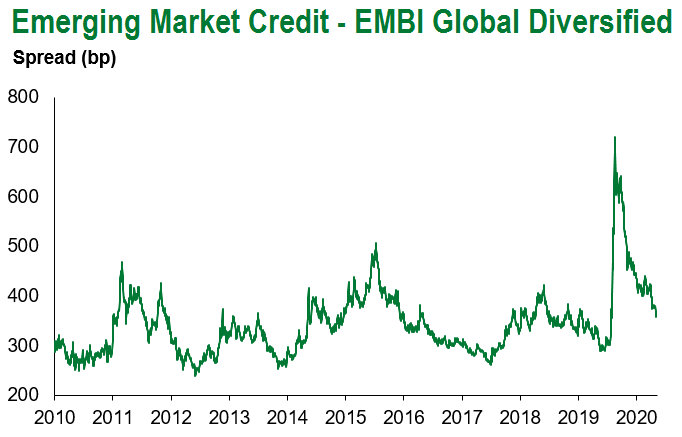
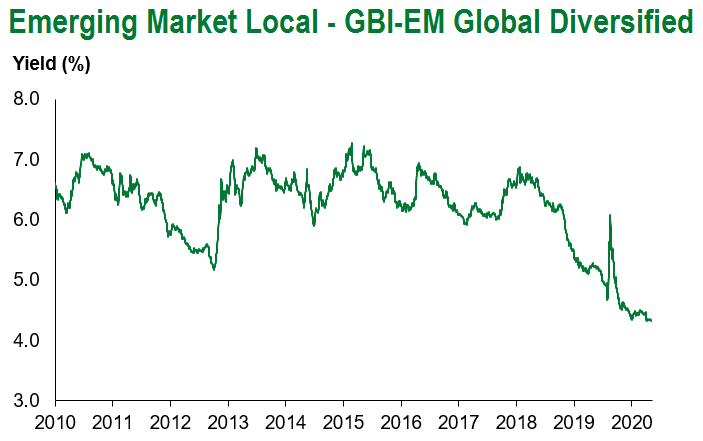
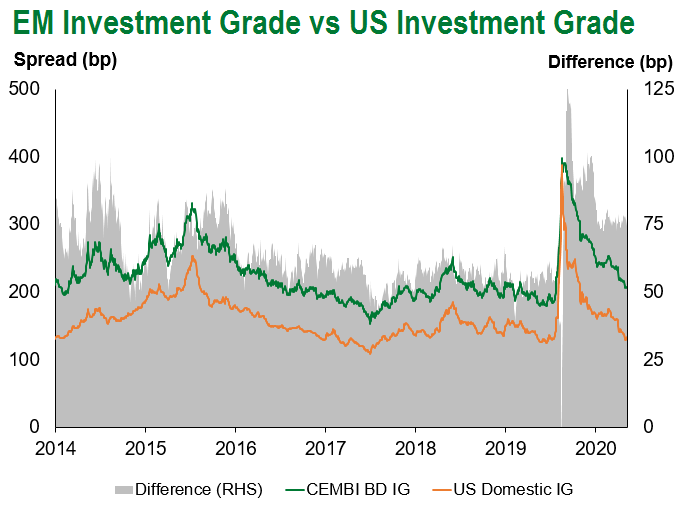
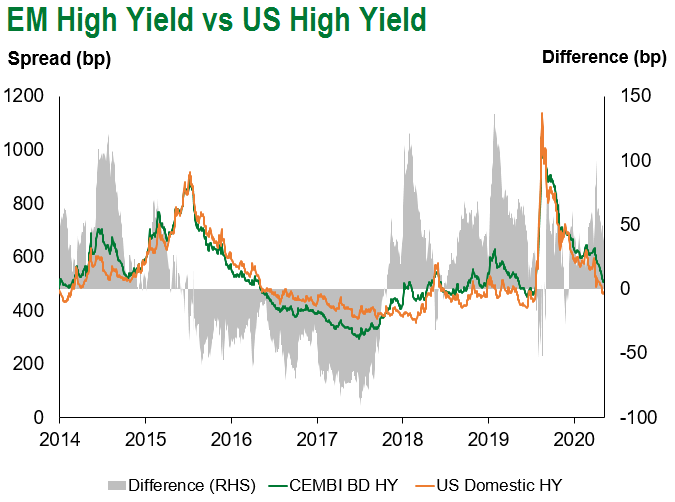
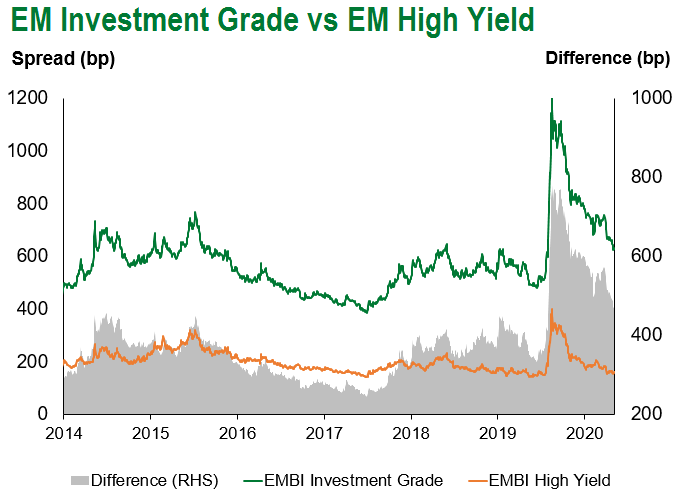
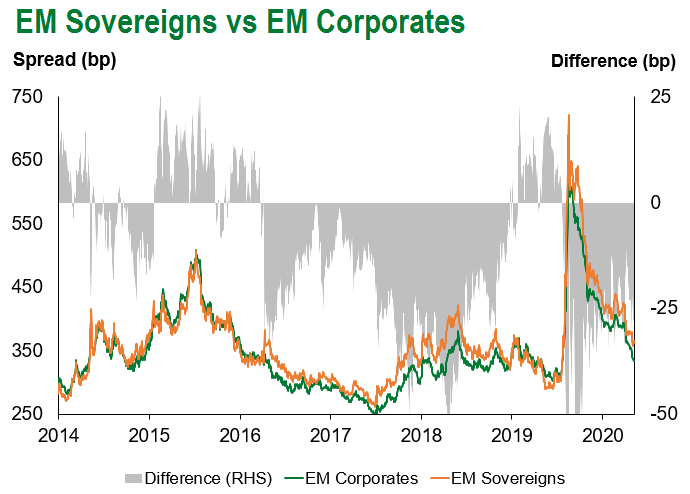
Emerging Markets Flows
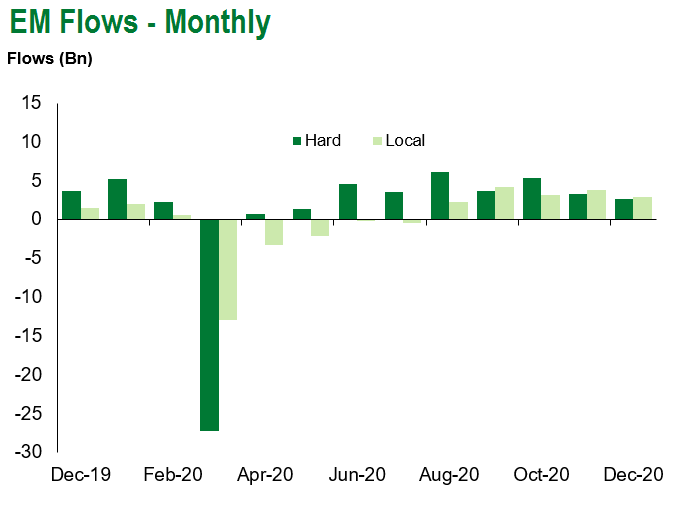
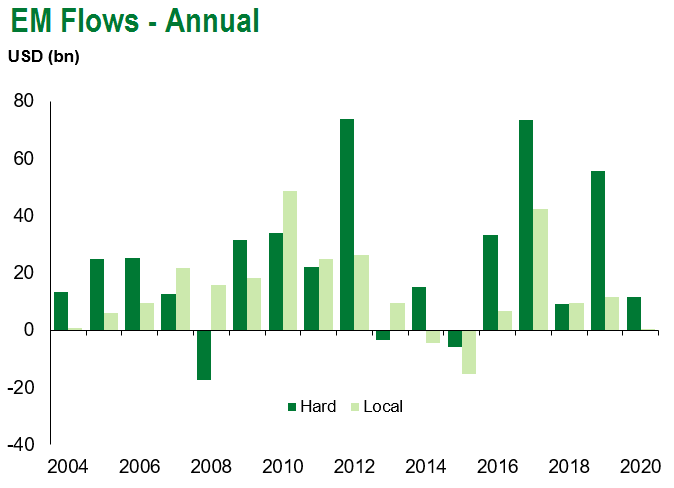
Source for graphs: Bloomberg, JPMorgan, Gramercy. As of December 11, 2020.
COVID Resources
Emerging Markets COVID-19 Case Summary
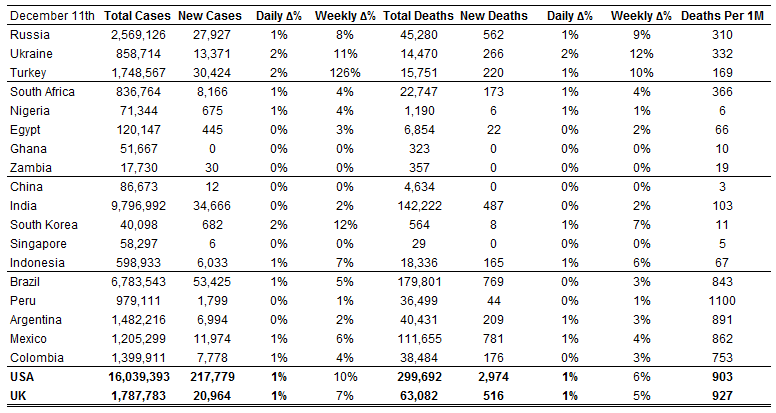
Source: Worldometer as of December 11, 2020.
Additional Crisis Resources:
Johns Hopkins COVID-19 Case Tracker
For questions, please contact:
Kathryn Exum, Senior Vice President, Sovereign Research Analyst, [email protected]
Petar Atanasov, Senior Vice President, Sovereign Research Analyst, [email protected]
Tolu Alamutu,CFA, Senior Vice President, Corporate Research Analyst, [email protected]
James Barry, Vice President, Corporate Research Analyst, [email protected]
This document is for informational purposes only. The information presented is not intended to be relied upon as a forecast, research or investment advice, and is not a recommendation, offer or solicitation to buy or sell any securities or to adopt any investment strategy. Gramercy may have current investment positions in the securities or sovereigns mentioned above. The information and opinions contained in this paper are as of the date of initial publication, derived from proprietary and nonproprietary sources deemed by Gramercy to be reliable, are not necessarily all-inclusive and are not guaranteed as to accuracy. This paper may contain “forward-looking” information that is not purely historical in nature. Such information may include, among other things, projections and forecasts. There is no guarantee that any forecasts made will come to pass. Reliance upon information in this paper is at the sole discretion of the reader. You should not rely on this presentation as the basis upon which to make an investment decision. Investment involves risk. There can be no assurance that investment objectives will be achieved. Investors must be prepared to bear the risk of a total loss of their investment. These risks are often heightened for investments in emerging/developing markets or smaller capital markets. International investing involves risks, including risks related to foreign currency, limited liquidity, less government regulation, and the possibility of substantial volatility due to adverse political, economic or other developments. The information provided herein is neither tax nor legal advice. Investors should speak to their tax professional for specific information regarding their tax situation.